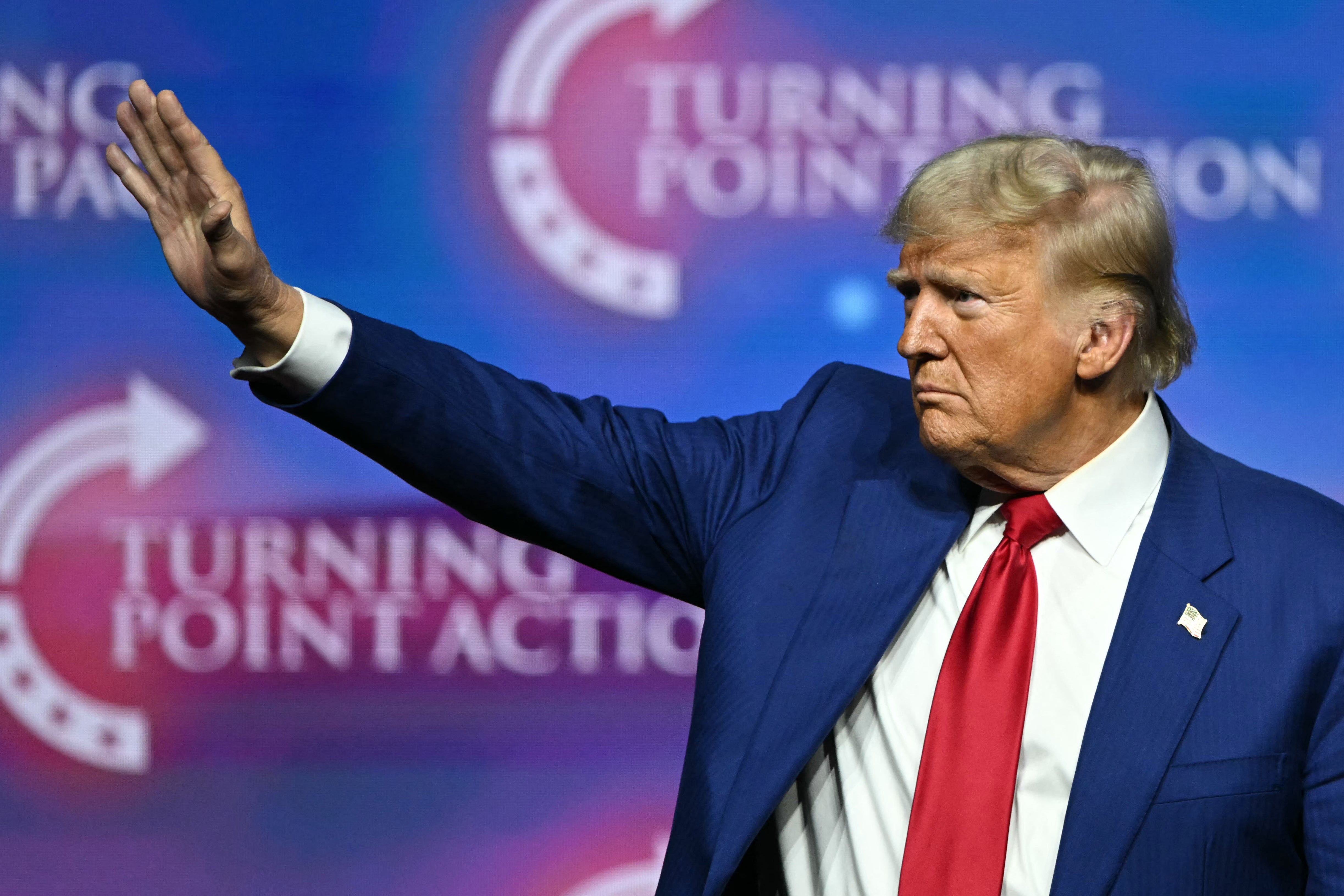What Donald Trump needs to know about Adolf Hitler
Demanding ‘total loyalty’ from his generals cost the Nazi Führer the war, says Simon Walters. They had to obey his orders or be shot – even when it led to defeat


Donald Trump barely has to open his mouth to shock or display his ignorance. He managed to do both simultaneously this week when comments he is said to have made about Adolf Hitler were reported.
According to Trump’s former chief of staff John Kelly, Trump praised the Nazi leader saying he “did some good things”.
More specifically, he wanted his staff to be more like “German generals in World War II”, because they were “totally loyal” to Hitler.
The reported remarks prompted Kamala Harris to call Trump a “fascist”.
A Trump spokesperson denied he had made the comments.
However, Kelly is not the first to make claims about Trump’s supposed private remarks about Hitler – though crucially, he is the first to talk about it publicly.
Certainly, Trump has made no secret of the fact that he expects total loyalty from those around him.
One of his senior advisers, Howard Lutnick, co-chair of his “transition team”, spelt it out two weeks ago.
If Trump becomes president again, anyone who served him would have to show “fidelity and loyalty”, stressed Lutnick.
Hitler’s generals didn’t have much choice but to show him “total loyalty”.
If they didn’t obey his every word and whim, they were shot.
But far from being an asset, it proved a fatal flaw.
If Trump had spoken to almost any Second World War historian, they would have told him Hitler’s demand for “total loyalty” from his generals was one of the main reasons he lost the war.
In Hitler’s warped mind, it meant “total obedience”.
Time and again, he overruled their expert advice and, time and again, it led to mass German casualties – and ultimately Hitler’s defeat.
If only Trump had read the recent book by broadcaster, biographer of King Charles and Second World War historian Jonathan Dimbleby, Endgame 1944.
In an account of Hitler’s defeat by the Russians on the Eastern Front in 1944, Dimbleby documents how, on countless occasions, Hitler’s version of “total loyalty” backfired disastrously.
It paints a picture of a man whose arrogance, vanity, stubbornness, stupidity and eccentricities led him to believe he always knew better than his generals on the ground.
Those who defied him – not out of disloyalty but through a desire to make the correct military decision – sent the Führer into a foam-flecked rage and were shot as traitors.
Those who did not defy him and carried out his orders fared little better: they had to watch as hundreds, sometimes thousands, of German soldiers’ lives were needlessly lost and the Allies marched on.
Describing one of many examples where Hitler refused to listen to his generals with catastrophic consequences, Dimbleby writes: “His latest ruling served merely to illustrate his obstinacy and his total disregard for human life. The town was to be held even if it meant squandering the lives of tens of thousands of loyal German soldiers on the altar of his ego.”
In fact, Trump is wrong: not all of Hitler’s generals supported him slavishly.
Dimbleby points out that as the war progressed and defeat loomed, “Hitler imposed his unrelenting vision on those unhappy generals who had lost faith” in him.
Trump himself has recently survived two attempts on his life. You would think he knew Hitler survived a number of attempts to kill him by disloyal army officers, most notably Claus von Stauffenberg who, in 1944, placed a briefcase containing a bomb under Hitler’s table. It detonated but Hitler was only injured.
Stauffenberg and 200 fellow conspirators were executed.
Like Stauffenberg, Kelly, the former US Marine Corps general who made the allegations against Trump, had previously been “totally loyal” to his former boss.
Like Stauffenberg, Kelly appears to be an honourable and decent man.
Clearly, a sense of proportion is needed here.
Kelly’s fate for what Trump saw as an attempted political assassination was merely to be hit with a volley of verbal abuse from the former president who called him a “degenerate low-life”. You can imagine him foam-flecked as he spat out the words.
It is hard to believe Trump does not know about all the other blunders made by Hitler and his “totally loyal” generals: repeating Napoleon’s mistake of invading Russia; needlessly declaring war on the US after Pearl Harbor; being duped into thinking D-Day would target Calais, not Normandy; letting Churchill and Britain off the hook at Dunkirk, to name just four.
I would happily send him a copy of Dimbleby’s excellent Second World War book – if I thought he would read it.
Join our commenting forum
Join thought-provoking conversations, follow other Independent readers and see their replies
Comments
Bookmark popover
Removed from bookmarks